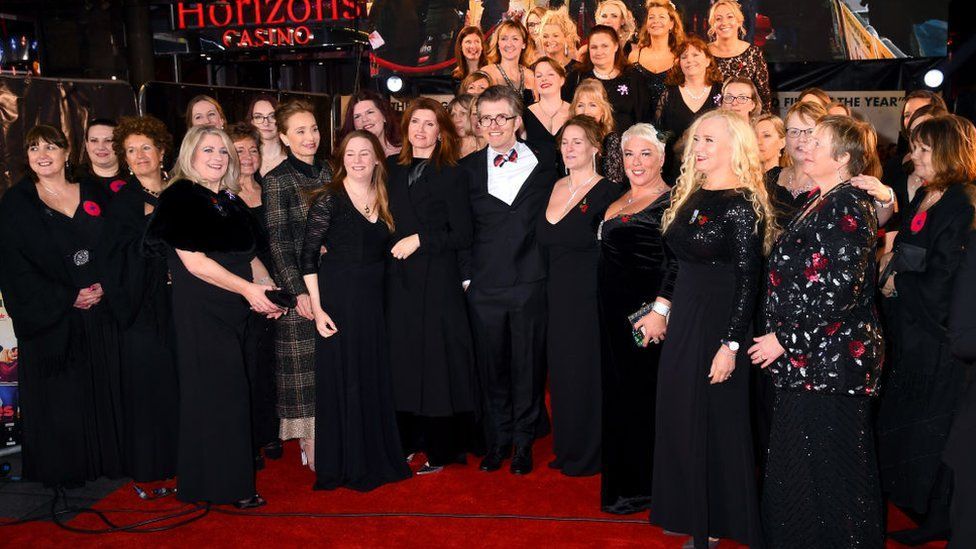In the last decade since Gareth Malone and the Military Wives Choir appeared on our screens in their 2011 two-part BBC documentary, the British public's attention to, and empathy for, military spouses have skyrocketed.
After winning Christmas number one with "Wherever You Are", the group has performed at the Royal Albert Hall, expanded to over 70 choirs, produced 6 albums, numerous books, and was recently the subject of a film starring Kristin Scott Thomas and Sharon Horgan. Beginning in 2010 as the 'Military WAGS Choir' based out of Catterick Garrison, they have been catapulted to the level of national treasures thanks to their mix of personal stories of sacrifice and "patriotic feminine stoicism". As the faces of "new British patriotic popular music", these women operate in a sweet spot between showbusiness and commemoration.
However, this increased attention makes a critical eye even more imperative. Building from the legendary work of Cynthia Enloe, who crucially asked "where are the women?" in military studies, a growing body of critical scholars are foregrounding the experiences of military spouses to generate new insights into the operation and diffusion of military power. As Alice Cree (2020: 305) astutely explains:
"the choir is perhaps the most prominent example of gendered militarized logics, which insist on the masculine heroic soldier as the protector of the nation, and the feminine military wife as the embodiment of all that is protected."
Attention to the narratives and expectations enveloping military spouses is thus crucial in order to better understand not only the lived realities of military communities, but also wider articulations of military power in politics and society.
To do just this, throughout July we were lucky enough to partner with the Rethinking Military Spouses Research Group, a group of interdisciplinary early-career academics who officially established themselves in April of this year. The group is committed to enabling critical discussions on multiple aspects of military spouse research, such as unpacking the practical and emotional labour of military spouses, challenging homogenous framings of military spouses, and destabilising the relationship between military spouses, the military, and the state. It has been absolutely fascinating to share in the growing momentum of this group and we are extremely grateful for the insights they have already imparted on the DRN.
See the full newsletter here: Military Spouses
Visit the Newsletter Catalogue to catch up on all our past issues!

